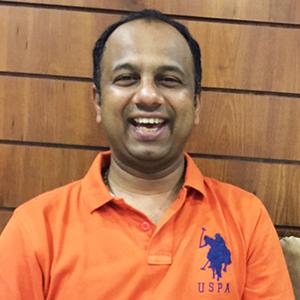
Give blood. Give now. Give often.
On World Blood Donor Day, Dr Nikhil Nasikkar, a frequent blood donor, points out the acute shortage of blood in our hospitals and implores potential donors to donate blood generously to save people who die every year due to its scarcity. Most middle and low income countries have low blood donation rates.
I first donated blood on my 19th birthday. My friends were pestering me to cut a cake and throw a party. But I am not much into celebration. I prefer to spend quieter time in a more meaningful way. I remember on some of my earlier birthdays, I would take money from my parents, buy caged birds and release them. It would give me immense pleasure to set them free. So when I turned 19 on November 8, I was suddenly overcome by this urge to donate blood. As I was studying in a science college, there was a blood bank on campus. I went alone to the bank and donated 350 ml of blood.
The thought that my blood would be able to save somebody’s life made me feel extremely good. I don’t know whether it would be appropriate to say, but it gave me a ‘big high’.
Since then, in the last 16 years, I have donated blood more than 40 times. Fortunately, my blood group is O positive that makes me a universal donor.
The desire to donate blood started when I was in my teens. There was a blood donation camp being held close to my house in Nagpur. I was a science student and was curious to go through the experience. When I asked my father for permission, he refused outright. “You have your board exams next year, and you need to keep fit,” he dismissed me sternly.
Ever since I have been nursing this desire to donate blood. It was only after a shifted to Bombay for my further medical studies that I got my first opportunity.
Initially, I would donate blood randomly. It was during my post graduation study at BARC that I began feeling the need to donate regularly. One day I was injecting a thalassaemic patient for blood transfusion. The patient had a smooth experience, unlike his previous visits.
I was able to locate his veins with ease and no pain. Slowly, as I came in contact with more thalassaemic patients, I discovered that many of them were not getting blood on time due to an acute shortage. Often, they would have to forego transfusion that would create severe complications for them. From then on, I became more serious about donating blood. Now, whenever I hear about any blood donation camp being held nearby, I round up my friends and other potential donors and request them to donate blood.
The sad part is that in a teeming, wealthy metropolis like Bombay, there exists an acute shortage of blood. There are lakhs of people dying each year due to its scarcity. Of the total requirement, we manage to collect only 35-40 percent. There is a shortfall of over 60 percent blood needed by the city. To give another example, in just one thalassaemic blood transfusion centre in Bombay, 3,600 bags of blood are required every month, but what is actually available is only half of that.
So, on World Blood Donor day, I would request all potential blood donors to go donate blood at least once in their life. This will take care not only of their health, but the health of their family and the community at large.
Also, I would like to promote the concept of autotransfusion. In autotransfusion, you donate blood before your own surgery which can be used later if required. However, this works only for elective surgeries not emergencies.






